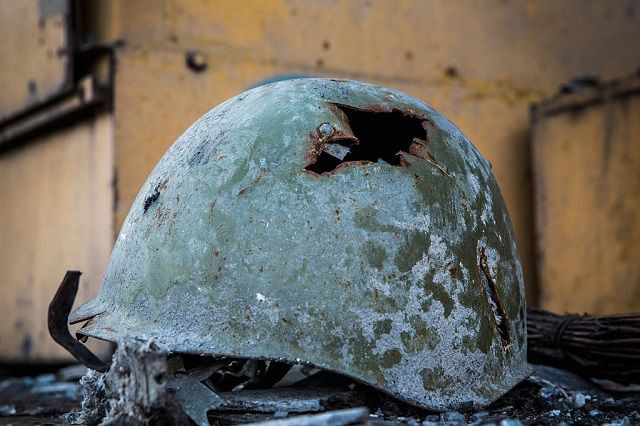Veterans With PTSD More Likely To Report Dissatisfaction With Sex Life, Women Often Have Less Sex

Veterans who return home with post-traumatic stress disorder (PTSD) may also struggle with their sex lives, suggests a recent study published in the Journal of Traumatic Stress.
The researchers examined data taken from a long-running cohort study of warzone veterans called the Veterans After-Discharge Longitudinal Registry, or VALOR. They then compared 987 veterans with PTSD to 594 veterans without the condition. Those with the disorder were nearly twice as likely to feel dissatisfied about their sex lives as well as more likely to report sexual dysfunction than those without. And while men in both groups were about equally likely to report being sexually active, women with PTSD were less likely to report having sex in the past three months than their counterparts.
“In both genders, a diagnosis of PTSD was associated with decreased sexual satisfaction, independent of medications used to treat PTSD, such as opioids and SSRIs,” they concluded.
An Underestimated Problem
The VALOR study provided the authors with an unique opportunity. Previous research examining the connection between sexual health and PTSD in veterans had almost entirely focused on small groups of men. VALOR, however, has a balance of genders among enrollees, allowing the researchers to see if this connection worked differently between men and women.
“In planning health service needs, it is useful to know how sexual health is similar or different in male and female veterans with and without PTSD,” they wrote. “Furthermore, understanding how PTSD relates to sexual health could improve clinicians’ ability to counsel patients.”
Overall, 71 percent of men with PTSD in the current study reported being sexually active in the last three months, a slight step down from the 75 percent without it who reported the same. Only 59 percent of women with PTSD reported being sexually active, compared to 72 percent of women without it. Roughly 46 percent of both men and women without PTSD reported feeling satisfied with their sex lives, compared to 28 percent of men and 23 percent of women with the disorder, respectively.
The relationship between sexual dysfunction and PTSD found in both genders disappeared once the authors took other factors like medication history into account. This finding is likely muddled, they noted. For one, many of the medications used to treat PTSD, such as SSRIs, are known to tamper with a person’s sex drive, meaning that the condition could still have a real, if indirect, effect on sexual function. It’s also likely that many veterans were reluctant to disclose their sexual problems, and many doctors may have hesitated to explore that possibility in women, since there are relatively few treatments available for them. Given how poorly those with PTSD rated their sex lives, though, it’s likely that many vets are being severely undertreated for sexual dysfunction, the authors wrote.
The direct association between sexual dissatisfaction and PTSD also weakened after other factors were accounted for, but overall the connection remained significant.
The fact that men with PTSD were as sexually active as those without PTSD was a surprise to the researchers, though they had some educated guesses as to why that was the case. “We hypothesize that men with PTSD may use masturbation or other sexual activities, in addition to intercourse, as a means of coping with physiologically raised stress levels,” they wrote. “Women may be less likely to masturbate in response to traumatic stress, as masturbation frequencies in population studies are typically lower in women compared to men.”
Given how crucial a healthy sex life is to a person’s overall well-being and self-esteem, the authors hope their findings “highlight the need for clinicians to consider sexual health outcomes among the multiple areas of quality of life that are frequently affected by PTSD in both male and female veterans.”
Source: Breyer B, Fang S, Seal K, et al. Sexual Health in Male and Female Iraq and Afghanistan U. S. War Veterans With and Without PTSD: Findings From the VALOR Cohort. Journal of Traumatic Stress. 2016.



























